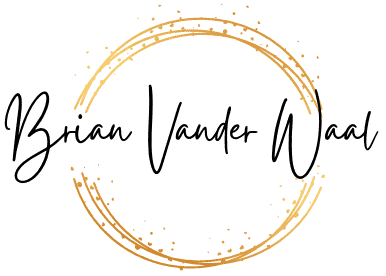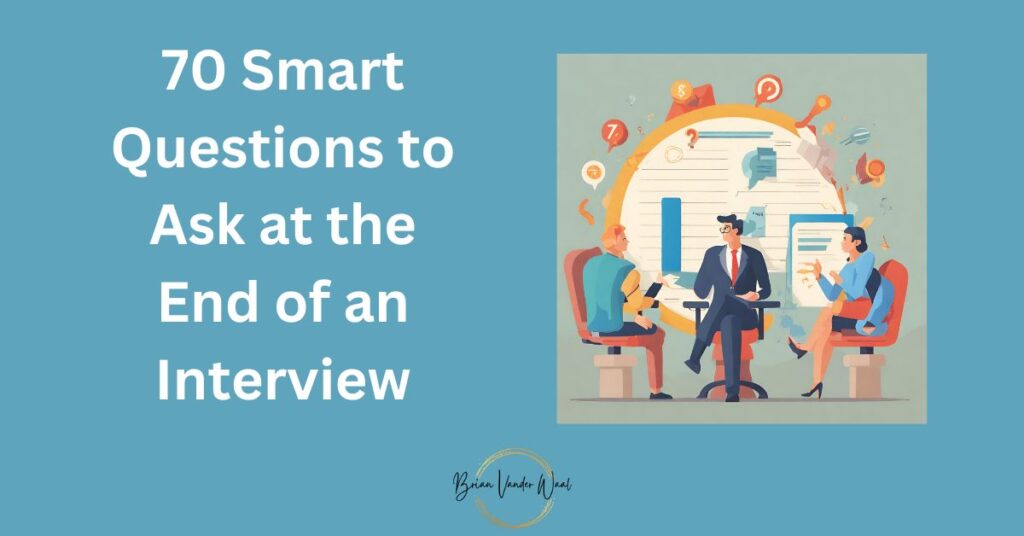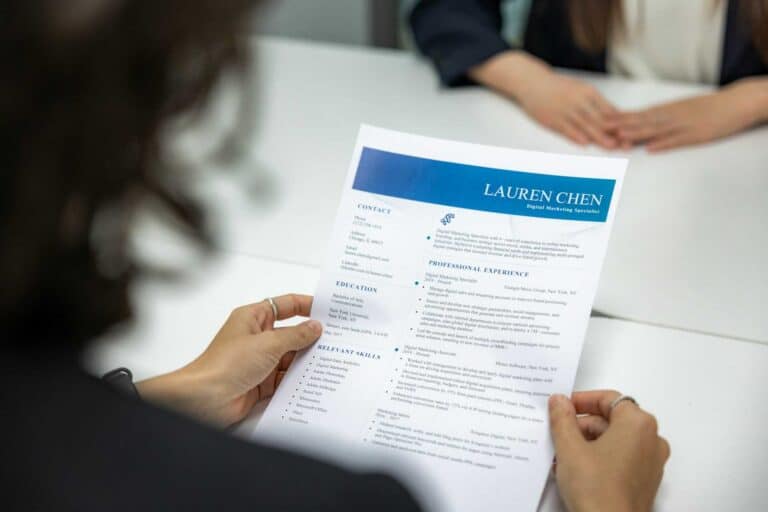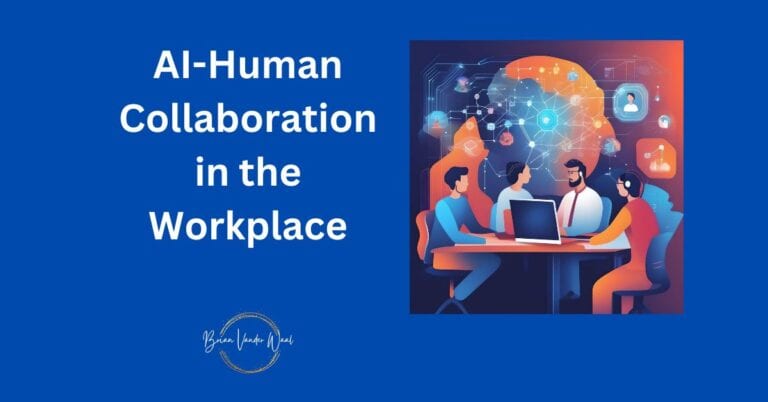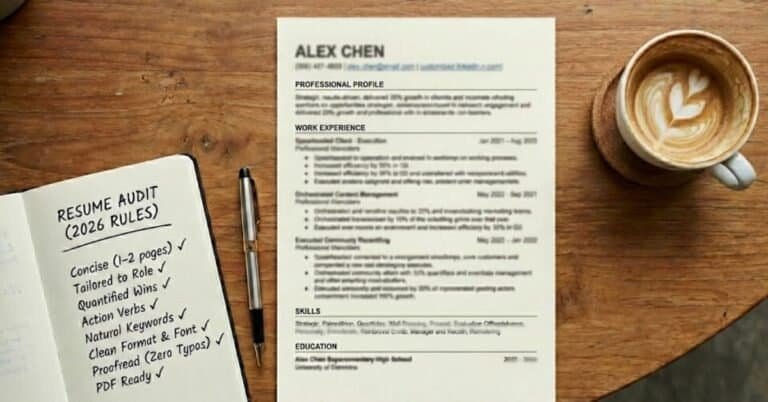What Questions Should I Ask at the End of an Interview?
Who am I, and why should you trust my interview tips?
My name is Brian Vander Waal, and I have invested more than 19 years in the employment and careers sector. As a Career Coach, I have supported thousands of clients with interview prep, which has helped them land their dream jobs. Due to my expertise and experience, I know what it takes to help people succeed in interviews.
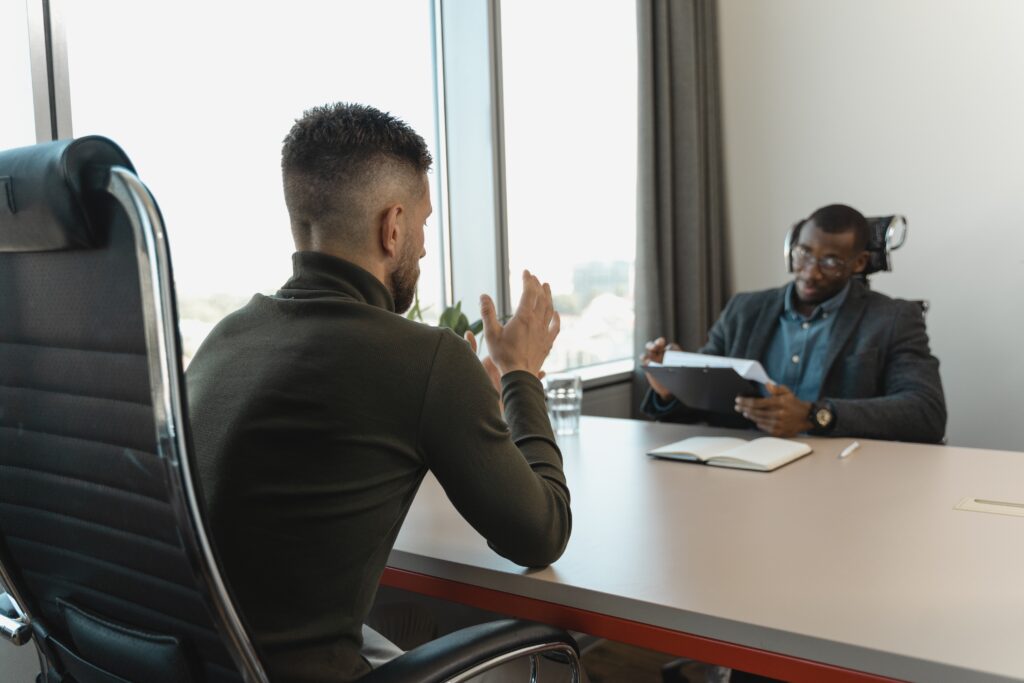
Imagine you have completed the perfect interview. You felt the most confident you have ever been in an interview, and all your answers hit the mark. You feel certain at this point that you will get the job. However, suddenly, the hammer comes down and smashes all the good vibes you had about the interview. You get to the end, and the interviewing manager asks you, “Do you have any questions you’d like to ask us?”
The worst answer you could give is “no,” “I can’t think of any”, or “you have answered all of my questions.” You will lose all the good work you did in the interview, and the interviewing manager will completely lose confidence in you. Additionally, you will miss the opportunity to determine whether the company is a good fit for you.
Embarking on a job interview can be a nerve-wracking experience, but the art of asking insightful questions at a job interview can be your key to success. Asking high-quality, well-thought-out questions at an interview is crucial to your success because:
- It shows you have researched the company
- Demonstrates the value you would bring
- Shows you are interested in the job
- It expresses that you are interested in working for them.
Therefore, it is important for job seekers to come prepared with at least two or three questions to ask at the end of every job interview. Asking questions is a simple way to show the potential employer that you are informed, interested, and engaged in the company.
So, what are the best questions to ask at the end of an interview? I will guide you through the best questions to ask in your next job interview based on my expertise in supporting thousands of people to succeed at the interview stage as a Career Coach.
Ask Questions About the Company that Show You Have Researched the Company
During the interview process, demonstrate your familiarity with the company and your appreciation for its core principles by posing thoughtful questions to the interviewer. As a helpful guide, consider asking these three questions at the end of your next job interview, showcasing that you researched the company:
1. Your website shows that passion for creativity is one of your key principles. Does the organization have a procedure for sharing creative ideas?
2. I read on your “About Us” page that one of your values is ‘world-class customer focus.’ How does this company ensure that it is better than its competition in customer focus? How can I help the company excel even more in this area?
3. The job description states that one of your key principles is ‘always learning.’ What opportunities does this organization provide for continued learning, and how do you support the continuing professional development of your staff? Are further training opportunities funded by the company?
Why These Interview Questions Are Beneficial
These questions show that you have researched the company, value its key principles, and are already thinking about how to implement their key principles into your working practice. The company you are interviewing with may have different values or principles, but you can ask these types of questions. Use these questions as a template to guide your questions.
Ensure your question relates directly to their values and key principles, but the above questions should help you get your creative juices flowing. The key thing is that your question shows that you have researched the company and are exploring how your skills can bring value to the company and achieve the principles it seeks to achieve. This will leave your interviewer with a very positive impression of you. The answers to these questions will also provide you with a better understanding of the internal workings of the company.
Ask the Hiring Manager Questions to Assess Whether the Job is the Right Fit For You
Pose questions that show you have researched the company and you are exploring how you might fit within the company’s aims, values, goals, and plans for the future. An interview is a two-way conversation. It is not just a time for the hiring manager to interview you, but also your chance to ask questions to determine whether the company and role fit you.
Some of the best questions to ask at the end of an interview to assess whether the job is the right fit for you are:
4. I read in the newspaper that you are growing and expanding in X. In what other areas of the organization do you expect growth in the next 5 years
5. How will my role/skillset be utilized to support these growth areas?
6. What career progression opportunities will be available within these growth areas?
Why These Interview Questions Are Beneficial
These questions show that:
- You are using various sources (including newspapers) to research the company, and you value them enough to take the time to research them extensively.
- You are interested in the company’s growth and development, and you aim to play an active role in achieving the company’s goals.
- Your motivation is high, and you aspire to advance within the company.
- It helps you to see whether the job is the right fit for you and whether your skills would be valued and best utilized by the company.
Similar questions to ask at the end of the interview which you could consider are:
7. I read in the news last week that you changed X within the organization. What are the long-range plans for this organization?
8. How will my role/skillset be utilized to support the organization’s plans?
Why These Interview Questions Are Beneficial
The above five questions are important because they show that you researched the company, are interested in their development and long-term plans, and want to know how you might fit within them. They also show you are a driven person who wants to play a key role in supporting the company to achieve its goals.
The questions also show that you have the confidence to take on the tasks and responsibilities needed to help the company achieve its plans. On the other hand, it allows you to determine whether any of the organization’s future plans do not fit within your values, goals, or career plans.
Ask Questions at the End of the Interview About the History of the Role and Organization
It is a good idea to ask a question that shows you researched the organisation’s history, which also enables you to find out more about the history of the role and anticipated changes in the future.
Ask this question about the history of the organisation:
9. I have read on your website the organisation’s history, and how it has changed in areas X, Y, and Z. I find the journey your organization has taken very interesting and see that it has evolved in amazing ways over the years. Can you tell me how this role has evolved?
Ask this question about the history of the role:
10. What changes do you anticipate for this role?
Why These Interview Questions Are Beneficial
Ask these questions because they enable you to proactively uncover anticipated changes for the role before making a commitment. This not only demonstrates your interest and research, but also serves as a subtle method to determine whether any upcoming changes to your role would be advantageous or undesirable for you. It may also be a way of finding out whether there are any red flags in the history of the role.

Smart Questions to Ask to Find Out Whether Previous Staff Were Happy in the Role
To gain a flavor of whether previous staff were happy in the role and if there are any risks or concerns you should be aware of, it is a good idea to ask a question that can provide clues in this regard. You don’t want to move into a job you will be very unhappy in, especially if you are currently in a job you are happy in.
Questions to ask at the end of an interview to find out whether previous staff were happy in the role include:
11. Why is this position available? Is this a new role? If not, what did the previous staff member go on to do?
12. How long was the previous employee in this position?
13. Was the previous staff member happy and successful in this role?
14. Was the person who was previously in this role promoted to a new role?
15. Did the previous employee move on to a new company? If so, why did they leave?
Why These Interview Questions Are Beneficial
Gaining a deeper understanding of the role and its dynamics will help you unravel the history of the position. These questions provide a good way of finding out if there were any issues in the past or if someone was happily working in that role. This will help you decide whether the job is the right fit for you.
You also gain insights into the organisational context by inquiring about the reason for the vacancy and whether it’s a new role. Additionally, questions about the duration of the previous employee’s tenure, their happiness and success, and any potential promotions or departures offer a comprehensive snapshot of the position’s history.
Further, employing such queries provides a lens into the past, enabling you to gauge the work environment, potential challenges, and the overall satisfaction of previous incumbents. Therefore, armed with this knowledge, you can make a more informed decision about the role’s alignment with your aspirations and preferences.
These questions are invaluable tools for decoding the position’s background and ensuring it resonates with your career goals.
Questions to Ask at the End of an Interview About Prospects for Promotion
Before you start working for a company, it is important to know whether there are good prospects for promotion and advancement in the company or whether you will likely be stagnant for many years due to a lack of promotion opportunities. The last thing you want is to be stuck in a dead-end job.
Demonstrating motivation and expressing a keen interest in understanding the criteria for promotion is also crucial when communicating with your interviewer.
Questions to ask in a job interview to find out whether there are good prospects for promotion include:
16. What are the prospects for promotion in the future?
17. What are some of the achievements and personal qualities you would consider important for promotion?
18. What are the types of roles I could progress into?
19. What opportunities do you provide to help staff develop the skills and experiences they need for promotion?
20. What was your journey into the role you are in today?
21. What advice would you give someone in this role regarding what it takes to progress within this organization and into a role like you now have?
Why These Interview Questions Are Beneficial
These questions serve as a strategic compass for those aspiring to climb the organizational ladder. You showcase your ambition by inquiring about the reasons behind the position’s availability and its potential as a new role.
By probing into prospects for future promotions, essential achievements, and qualities valued in promotions, you also signal your aspiration for continual growth. Exploring the avenues for progression and the organization’s commitment to skill development further highlights your dedication to evolving within the company.
Additionally, gaining insights into the journey of current role holders and seeking advice on career progression illuminates your proactive approach to learning and success. Overall, these questions powerfully convey your ambition, motivation, and eagerness to learn, fostering a positive impression on the interviewing manager.

Best Questions to Ask the Interviewer to Demonstrate Your Desire to be a High Achiever
Use the opportunity to ask questions to show the interviewer that you desire to be a high achiever, you want to meet the organisation’s needs, and value the manager’s direction. At the interview stage, it is important to understand the manager’s expectations. This is because if you are selected after the interview, you can hit the ground running when you start. However, knowing whether the manager’s expectations are realistic before accepting any job offer is also important.
Good questions to ask at the end of an interview to demonstrate your desire to be a high achiever include:
22. How could I impress you in the first three months, six months, and year?
23. What would you like me to focus on in the first three months, six months, and year?
24. What objectives or targets will my performance be evaluated against?
25. What achievements would demonstrate that I met or exceeded expectations when carrying out my one-year performance review?
26. Could you tell me about the company’s methodology for performance reviews and how they are done?
27. How do you measure and evaluate success? How often is performance evaluated?
28. What distinguishes those who are good in this role from those who are exceptional at it?
Why These Interview Questions Are Beneficial
These questions will demonstrate to the interviewer that you desire to aim high, are proactive about seeking the information and tools needed to succeed from day one, and want to understand the performance review process.
Inquiring about focus areas, performance evaluation criteria, and the company’s review methodology demonstrates your commitment to personal responsibility and continuous improvement. Moreover, questions about success measurement and what distinguishes exceptional performance underscore your keen interest in aligning with the company’s standards of excellence.
In essence, these inquiries portray you as a forward-thinking candidate who is not only prepared for success from day one, but is also committed to ongoing personal and professional development. Overall, these questions show that you take personal responsibility for your work and success.
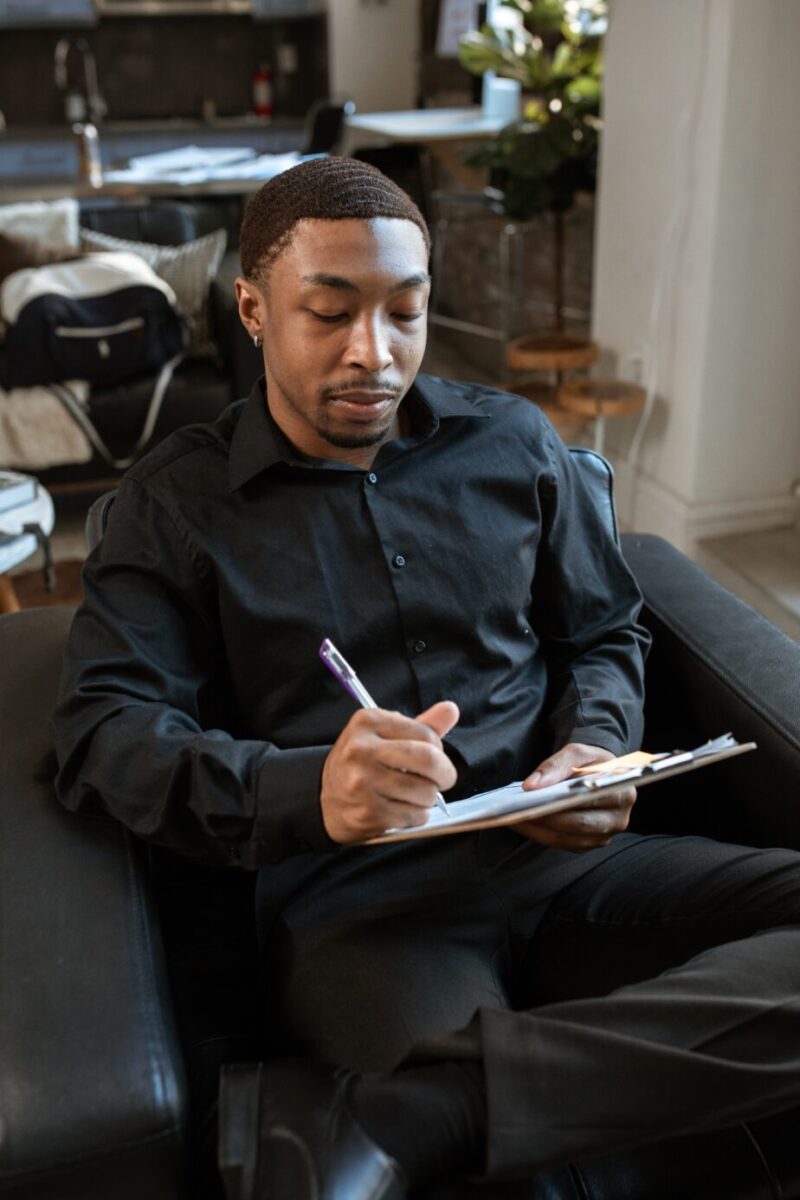
Questions to Ask at the End of a Job Interview about the Culture of the Organization
It is critical to ask the interviewer questions about the culture of the organization or company at the interview. This will help you determine whether the employer and the role will fit you well. As a career coach, I have encountered many people who regretted their new job because they did not have enough information about the company, culture, and role before starting. They failed to ask the right questions at the interview and before accepting the role.
Good questions to ask at the end of an interview about the culture of the organization include:
29. What do you enjoy the most about working in this company?
30. How long have you worked here?
31. What attracted you to this organization?
32. Why did you decide to work here?
33. What kind of people thrive here, and what type does not flourish?
34. If you could change one thing about this company, what would it be?
35. What has been the biggest surprise about working for this company?
36. What do you wish you knew before joining this organization?
37. Can you describe the culture of the company?
38. How would you describe the management philosophy of this organization?
39. How would you describe the work atmosphere of this company?
40. What word or phrase would best describe this organization?
41. Is there a lot of diversity in the company? Does the company celebrate diversity?
Why These Interview Questions Are Beneficial
Diving into the intricacies of the company’s culture, these questions provide a valuable lens into the lived experiences of current employees. Exploring aspects like management philosophy, work atmosphere, and diversity celebration enriches your understanding of the company’s ethos. The questions will also help you understand what makes them tick.
These questions further foster a connection with the interviewer, portraying you as someone genuinely interested in the company’s inner workings.
Overall, unravelling these layers helps you assess whether the company aligns with your values and preferences, mitigating the risk of regrets and ensuring a harmonious fit within the organizational culture.

Best Questions to Ask at the End of an Interview About the Team
Like the questions on the company’s culture, it is also imperative to ask the interviewer questions about the team at the interview for similar reasons. You need to discern whether the team will be a good fit for you and whether you want to work in this team. We spend about a third of our day at work. If we do not get along with our team, then our work may be miserable. If our work is miserable, it can also affect our whole life and interactions with family and friends outside of work. So, it is best to get it right from the beginning.
Good questions to ask at the end of an interview about the team include:
42. Can you tell me more about the team I would be working in?
43. What is the structure of the team?
44. Can you describe the strengths and weaknesses of the people who would be reporting to me?
45. Is there a lot of diversity in the team?
46. How has diversity been championed to make the team better?
47. Are diverse perspectives and ideas valued and sought out?
48. Can you describe the culture of the team I would be working in?
49. Can you describe the work atmosphere of the team?
50. Are people in the team competitive, supportive, and independent?
51. What word or phrase would best describe the team I would be working in?
Why These Interview Questions Are Beneficial
The above questions provide different ways of gaining a flavor of what the team might be like. They explore what the team is like and what it would be like to work with them from different angles. It will help you to see whether the culture and style of the team fit with your personality, values, preferred working style, and philosophy of teamwork.
Top Questions to Ask At the End of an Interview About the Role
One of the most essential questions to ask at the end of your interview is questions about what the job entails. After all, this is the job you will be doing day in and day out. The answer to this question will give you a better picture of what the job is about. These questions also show the interviewer that you care about the role.
You do not want to take a job just because it is higher pay, a promotion, it will give you status, or you are desperate for work. You must also consider whether it is a good fit. Otherwise, you may not be successful in your new job, hate the role, push yourself back in your career rather than forward, and have great regrets.
Sometimes, people take a job they don’t like because they need work to survive or to support their family. This is understandable. However, if it is possible, you should try to discern whether the role is a good match for you. Asking questions about the role at the interview can assist you with this.
Good questions to ask at the end of an interview about the role include:
52. How would you describe a typical work week in this role?
53. Can you tell me more about the tasks or projects I would be working on? Do you have any examples to show me?
54. What are the most pressing tasks or projects that need to be tackled from day one?
55. What percentage of time will be devoted to each of my responsibilities?
56. What knowledge, skills, experiences and personal qualities are you seeking in the person filling this role?
57. Are there gaps in knowledge, skills, and experience in the team that you want to fill with the person you offer the role to?
58. What have been the biggest challenges in this role in the past?
59. What do you anticipate will be the biggest challenges in this role in the future?
60. Will I be able to access admin support for my role?
61. Who will be managing me in this role?
62. What is the management style of the person I will report to?
63. What kind of orientation is available to new employees?
64. What communication channels are available for communicating with management and other staff?
65. Can you tell me more about the budget I will be working with?
Why These Interview Questions Are Beneficial
These questions will help you to gather comprehensive insights about crucial aspects of the potential role. You also gain valuable context by exploring the reasons behind the position’s availability, its nature as a new or existing role, and the trajectory of the previous staff member.
Transitioning to the specifics (i.e. questions about a typical work week, project details, and the allocation of responsibilities) provides a nuanced understanding of the role’s demands. Additionally, probing into the team’s needs, past challenges, and anticipated future hurdles offers a panoramic view of what to expect.
Details about management, orientation, communication channels, and budget considerations further empower you to gauge the role’s fit within your professional aspirations. Essentially, these questions serve as a strategic toolkit, ensuring you make an informed decision before accepting a job offer.
Try to learn as much about the role as possible before accepting a job offer.
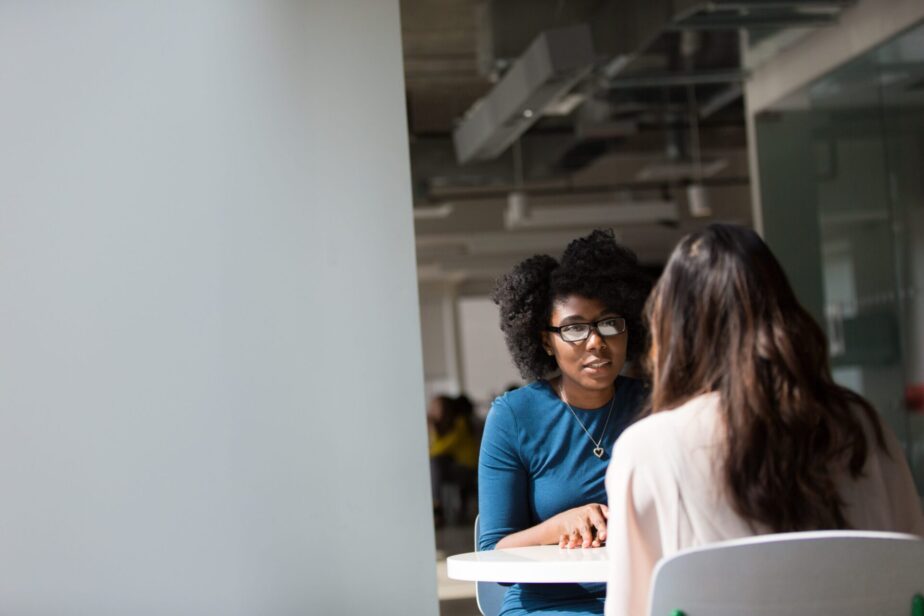
Best Questions to Ask at the End of an Interview About the Interview Process and Next Steps
Navigating the final moments of a job interview strategically can make a lasting impression on your potential employer. One critical aspect often overlooked is the opportunity to ask thoughtful questions about the interview process and the next steps. This not only demonstrates your genuine interest in the position but also provides you with valuable insights for your post-interview strategy.
Good Questions to Ask About the Interview Process and Next Steps Include:
66. Could you please outline the upcoming stages of the interview procedure?
Asking this question shows the interviewer your forward-looking approach and eagerness to understand the organization’s workflow. It further allows you to mentally prepare for what lies ahead and align your expectations with the timeline set by the company.
67. Could you please provide an estimated timeline for the decision-making process regarding this position?
Inquiring about the decision-making timeline demonstrates you want the job and helps you manage your expectations. Knowing when to anticipate feedback lets you plan your follow-up strategy and minimizes uncertainty during the post-interview waiting period.
68. Could you advise on the appropriate contacts for me to maintain communication with throughout the interview process?
Seeking clarity on communication channels showcases your commitment to staying engaged and informed. Establishing the right contacts ensures you are well-connected within the organization and helps you navigate the interview process seamlessly.
69. What is the preferred method of communication to get in touch with you? (if the named contact given is someone else, you can insert their name here)
Understanding the preferred communication method emphasizes your professionalism and consideration of the interviewer’s preferences. It also ensures that you are aligned with the company’s communication norms, setting the stage for effective and respectful correspondence.
70. If I haven’t received information about the interview outcome by the mentioned date, could you suggest an appropriate day for me to follow up?
This question demonstrates your proactive approach to staying informed and engaged in the hiring process. It also conveys your respect for the interviewer’s time frame while subtly expressing your eagerness for updates. Seeking guidance on an appropriate follow-up date further showcases your professionalism and your keen interest in the role.
Why These Interview Questions Are Beneficial
Overall, asking strategic questions about the interview process and next steps leaves a positive impression and equips you with the information needed for effective post-interview actions. By demonstrating your proactive and thoughtful approach, you position yourself as a candidate who is not only interested in the role but is also well-prepared and respectful of the company’s processes.
Questions to Avoid Asking at the End of An Interview
When engaging with interviewers, it’s crucial to be mindful of the questions you pose, ensuring they contribute positively to the conversation. Avoid asking questions about personal benefits, such as salary and holiday or vacation time, at the initial stages.
It is also wise to refrain from asking about issues already addressed in the job description or during the interview, as it may suggest a lack of preparation and listening skills.
Further, avoid overly critical or negative inquiries about the company culture or management unless framed constructively.
Lastly, it’s advisable to avoid questions that imply a lack of commitment. Instead, focus on questions that showcase your enthusiasm, curiosity, and alignment with the company’s goals.
Conclusion – Questions to Ask at the End of an Interview
The next time you wonder what questions to ask at the end of an interview, the above questions can help guide you in asking the right questions about the role. Pick the questions that are relevant to the role and which are most important to you.
Posing well-thought-out questions during the interview shows the prospective employer that you are informed, interested, and engaged in the company. Simultaneously, it helps you determine whether the job is the right fit for you. Before your next interview, research your prospective employer extensively and use the above questions to guide you as you prepare questions for your interviewer.
Remember that interviews are a dialogue, so it is not necessary to save all your questions until the end of the interview. Also, be prepared that sometimes the interviewer may ask if you have questions in the middle of the interview.
To learn more about how to do well in an interview, you can read my interview tips.
If you want to learn more about future careers, read my top picks for the best future careers.
Frequently Asked Questions (FAQs)
Why is it important to ask thoughtful questions at the end of an interview?
Asking thoughtful questions at the end of an interview shows the interviewer that you are genuinely interested in the position and the company. It also provides an opportunity to learn more about the role and the organization, which can help you make an informed decision if you are offered the job.
What are some tips for asking questions at the end of an interview?
Some tips for asking questions include preparing in advance, framing open-ended questions, and tailoring your questions to the specific company and position. It is also important to ask relevant and insightful questions demonstrating your genuine interest in the role and the organization.
How can asking questions at the end of an interview help build rapport with the interviewer?
Asking thoughtful questions can help build rapport with the interviewer by engaging them in a meaningful conversation. It shows that you are actively listening and interested in the role, and can lead to other questions or discussions that further establish a connection.
What kind of questions should I ask to get the best understanding of the company and position?
To gain the best understanding of the company and position, ask open-ended questions, encouraging the interviewer to share their insights and experiences. Further, tailoring your questions to the specific company and position can provide valuable information to help you determine if it’s the right fit for you.
What examples of open-ended questions can I ask at the end of every interview?
Open-ended questions include, “Can you tell me about the team I’ll be working with?” or “What opportunities for growth and advancement are available within the company?” These questions encourage detailed responses and can lead to further discussions.
When is the best time to ask questions during an interview?
The best time to ask questions is typically at the end of the interview when the interviewer tells you it’s your turn to ask. However, if there’s a natural flow in the conversation and an opportunity arises earlier, feel free to ask relevant questions at that time as well.
Is it common for interviewees to ask questions that they didn’t even know they had?
Yes, it is common for interviewees to discover new questions during the interview process. Sometimes, the answers to questions you asked earlier may lead to other questions. Further, the interviewer’s responses may prompt you to inquire about aspects of the role or the company that you didn’t even know to ask about initially.
Are there instances where it might be uncomfortable to ask certain questions?
Yes, there might be instances where it could be uncomfortable to ask certain questions, especially if they venture into sensitive topics or if the timing feels inappropriate. It’s important to use your judgment and ask relevant and respectful questions.
Should I always ask, “Do you have any questions for me?” at the end of an interview?
While it’s a common practice, it’s not necessary to always ask, “Do you have any questions for me?” at the end of an interview. Instead, focus on asking thoughtful and relevant questions that showcase your genuine interest in the position and the company.
